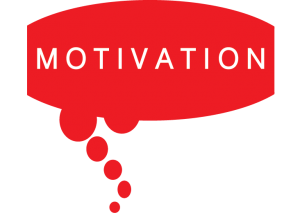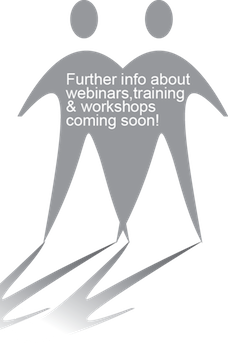T3 Programs and Services
Reasoning & Rehabilitation “Revised” [R&R]
This was a flagship program for T3 Associates that was retired in 2010. The R&R revised cognitive skills model was a state-of-the-art program curriculum originally developed in the early 1980’s as the first structured program applying cognitive-based theory and research to intervention with offenders. The program was used as a core intervention strategy in institutional and community correctional settings throughout Canada, the US, England and Wales, Scotland, Australia, the Nordic Countries, and Germany. The program was delivered to small groups of eight to ten participants in classroom settings in 38 curriculum based sessions of two hours duration over approximately 8 to 12 weeks. Unique to the program is a delivery “style” and a set of specific techniques of facilitator interaction intended to capture and sustain the participation and motivation of offenders.
Reasoning and Re-“Acting” Revised
Although based conceptually on the R&R Revised program, the Reasoning & Re-Acting Revised program is a cognitive motivational program designed specifically for at-risk adolescents and youthful offender. In 60 structured, one-hour sessions, the program attempts to replace entrenched adolescent thinking patterns with cognitive skills that can promote pro-social behavioural choices. A major emphasis on the program is on teaching youth to become more reflective rather than reactive, more anticipatory and prepared in their responses to potential problems, and more flexible, open-minded, reasoned and deliberate in their thinking in general. The program focuses on modifying the often impulsive, illogical, and sometimes very rigid thinking of many youth by teaching them, in short, to first “reason” before “reacting”. It is being implemented broadly as a prevention program throughout the educational system in Norway and as an intervention for delinquent youth in Canada, the US, Scotland and most recently, Singapore.
M.O.R.E. “Motivating Offenders to Rethink Everything”
Is a short-term intervention designed to engage youth or adult offenders to rethink their pro-criminal attitudes, values, and beliefs. M.O.R.E. is a multipurpose 5 – 12 session “rolling” program that can be useful in the following manners:
- as a stand-alone program for some short stay clients
- as a short and potentially motivating “preparatory”
- program for more resistant clients
- as a possible low intensity intervention for longer stay but lower risk clients
The central aim of M.O.R.E. is to give a kick start to some possible change. The program consists of 4 basic sessions, each one addressing a core area of “biased or illogical” thinking that can block change for many offenders. The program was not designed to work in any “additive” sort of way where the greater the exposure, the greater the expected change, but rather each session has the potential to pull down the “stack of cards”. Just like a stack of cards that will fall if one card is removed, we believe that offenders might begin to see some of the “incoherent” and “maladaptive” aspects of their lives if they can begin to “do things differently” in any one, or more, of four areas of thinking.
F.O.R.: a Change
Is a brief 13-session cognitive-motivational re-entry program designed to guide individuals through a structured process of personal goal setting and life planning. The primary aim of the Focusing On Re-Entry program is to increase the motivation of shorter-term offenders to become committed and active participants in setting their own agenda for change. Some of the benefits of the program could include – more frequent uptake of the range of assistance and services available through voluntary after-care-greater cooperation and willingness to target specific offending related issues (e.g., substance abuse) – some movement in the direction of achieving greater life stability (e.g., employment, relationships). Taken together, the program aims to increase the probability that offenders will experience a meaningful “transition” that can disrupt their criminal trajectory.
Cognitive and Social Interaction Skills For Re-Entry: A Program for Offenders Approaching Release
In a relatively short duration of 18 sequenced group-based sessions, this cognitive curriculum attempts to provide a “total package” of pro-social skills to offenders who may not have benefited from any other intervention during their prison sentence. Re-Entry poses significant challenges to offenders but many will be resistant to offers of assistance in key areas such as employment, accommodation, addictions …etc. This program was designed as a motivational pre-cursor to other needed supports for offenders facing Re-Entry. It attempts to motivationally engage offenders to re-evaluate their anti-social lifestyles and understand how particular attitude blocks and ways of thinking may have held them back in the past … and could again in the future. It encourages them to see how some easy-to-learn problem solving, goal setting and planning skills can be applied to developing a Personal Re-Entry Action Plan for success. It also guides them towards developing more effective ways of managing their own emotions (self-control and emotional self-management skills) and learning skills for getting along with others (listening, communication, assertive expression and conflict-management skills). The program is delivered in structured two-hour sessions and it employs numerous realistic Re-Entry examples and scenarios to help offenders practice new skills. It also makes extensive use of a Workbook or Journal approach with regular “thinking assignments” that offenders are encouraged to complete.
A”Women’s Programme”: A Programme for Female Offenders
A 32 session cognitive motivational program designed specifically to respond to the needs and learning styles of women. The overarching aim of the program is to enhance women’s range of responses to life circumstances, promote greater independence and self-reliance, and enhance and “motivate” their “me-centered” coping and decision-making skills. The program is focused on women, and was not just adapted for use with women. That focus is expressed in the following ways:
- in the content and materials that the program incorporates
- in the techniques and methods of delivery it adopts
- in the sequencing and integration of learning it follows
- in the underlying philosophy of expanding women’s connections and building healthy relationships that is adhered to throughout the program.
Violent Offender Program
A short 30-session program designed to motivate violent offenders in understanding their motives for violence and the total lifestyle changes needed to eliminate it. Many violent offenders hold on to quite distorted views of people, situations and contexts. Their perceptions are the by-products of a life trajectory where particular motives for violence have emerged and then been well reinforced and practiced, often without awareness. The program attempts to help these offenders disentangle the layers of self-perpetuating justification, defending and excusing of their behaviour. It further offers skills they can use to change their thinking and behaving and cope more effectively with people and problems in their lives.
Managing My Substance Use (MSU)
Is a cognitive-behavioral intervention designed for offenders who have to contend with substance abuse problems. The program adopts a relapse-prevention model and is uniquely designed for delivery in four phases. In Phase one, a comprehensive assessment is conducted to determine the offender’s severity of substance abuse problems, consumption patterns, how substance abuse has impinged on other life areas (e.g. employment) and level of motivation to deal with the issue. Phase two is a simple-to-follow 10-session curriculum that elaborates on the basic tenets of the relapse-prevention framework and implications for living a substance-abuse free lifestyle. Offenders participate with a practical Workbook that remains with them. Phase three is delivered according to the needs that offender’s present as a series of Workshops for dealing with risk factors related to substance abuser. Based on an earlier assessment of why offenders tend to drink or abuse drugs, Workshops are tailored to address their high-risk situations (e.g., boredom, anger, desire to socialize …etc.). Finally, in Phase four, referred to as the Maintenance Phase, offenders are offered ongoing support and assistance in applying program material and skills to their real life situations and challenges.

